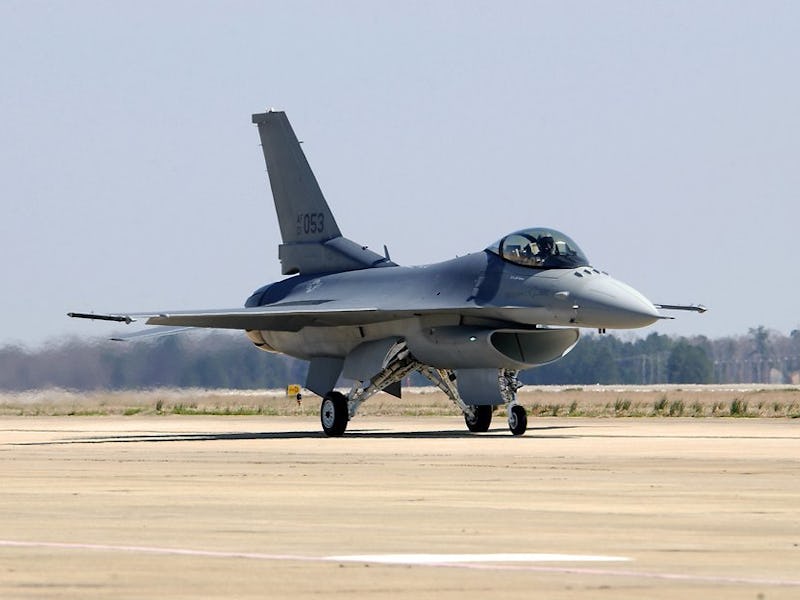Will Boeing’s Plan to Turn Jet Engine Noise Into Electricity Work?
If that sounds crazy, that’s because it is.

Public health officials have always been very concerned with mitigating the extremely loud noise produced by aircraft.
A turbo-fan aircraft taking off 200 feet away will produce noise at 118 decibels — past the human threshold for pain and damage from long-term exposure. A jet taking off just around 80 feet away can produce noise levels up to 150 decibels — which can rupture the eardrum. There’s a reason you see airport personnel on the runway wearing what are probably the biggest ear muffs available on the market.
Enter Boeing with an idea to do something useful with all that excess acoustic energy: Turn it into power for the people!
That’s the idea behind the company’s latest patent, which outlines a “method for generating electricity from acoustic energy from an aircraft on a runway.”
Yeah…
Boeing is no stranger to these kinds of insane theoretical blueprints. There was the patent for jet engines powered by nukes and lasers; the submarine drones; the force field to protect against explosions; and many more.
But back to the sound-absorbing power generators. Could they really work?
Not really. A 2011 explainer posted by the MIT School of Engineering tackled this question head-on, and the answer was less than optimistic.
“There is definitely energy contained in that sound,’ says David Cohen-Tanugi, vice president of the MIT Energy Club and a John S. Hennessy Fellow in MIT’s Materials Science and Engineering department. “But the density of the energy is very low, and there is no way to capture it all. You’d have to have obscenely loud, continuous noise for harvesting to be worthwhile.”
“What the human ear perceives as clanging cacophony—the roar of a train engine or the whine of a pneumatic drill—only translates to about a hundredth of a watt per square meter. In contrast, the amount of sunlight hitting a given spot on the earth is about 680 watts per meter squared. “That’s many orders of magnitude more,” explains Cohen-Tanugi. “That’s why it’s more efficient to collect and store sunlight using solar panels than to harvest energy from sound. And the energy density in oil and gas is orders and orders of magnitude higher, making generating power from those sources even more cost effective.”
So basically, unless you had planes taking off consistently — like one after another without missing a beat — and the machines were sensitive enough to capture enough of that acoustic energy byproduct, this plan is way too inefficient to take off (pun totally intended).
There is one major thing to consider, however: High noise levels aren’t just bad for human health — the resulting vibrations can do a great deal of damage to surrounding structures (like roads, buildings, vehicles, etc.). Creating something that can help to significantly absorb that sound and limit the amount of force accumulated by that noise could go a long way toward preserving expensive infrastructure and objects for longer periods of time.
That, however, is a crazy Boeing patent for another day.